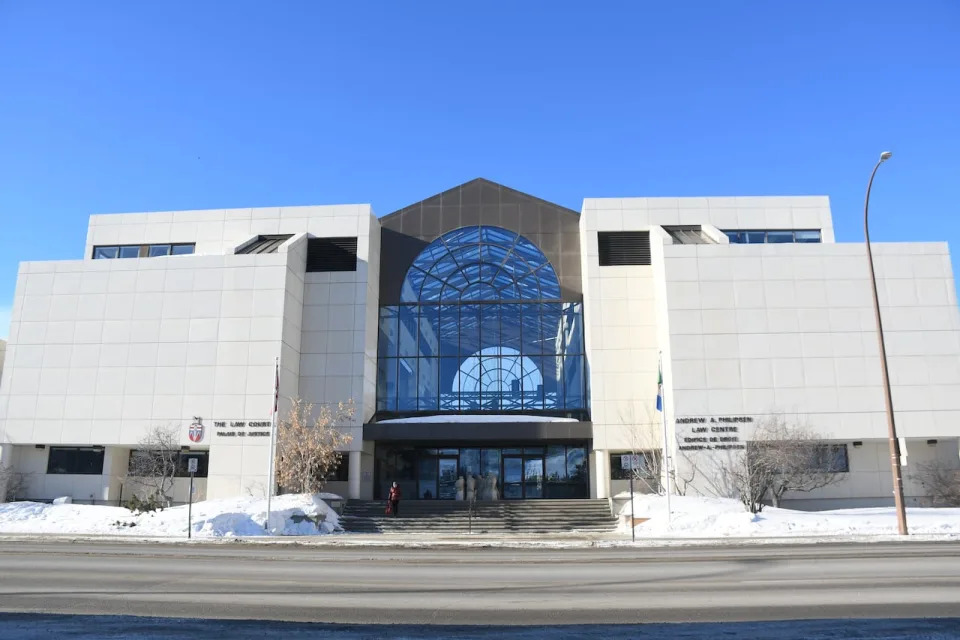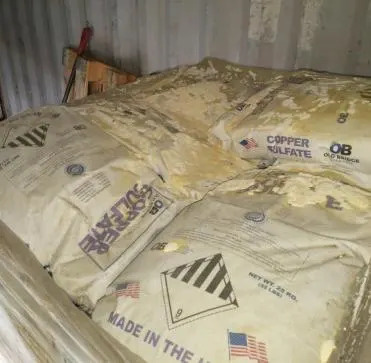CBC
Tue, February 6, 2024 at 2:37 p.m. MST·3 min read

The courthouse in Whitehorse as seen from Second Avenue. (Jackie Hong/CBC - image credit)
The company behind the Keno Hill mine in central Yukon is facing charges for allegedly failing to meet water quality standards and improperly storing hazardous materials.
The Alexco Keno Hill Mining Corp. made its first appearance in Yukon territorial court last week on one charge under the Quartz Mining Act and two more under the Waters Act.
In court documents, the company is accused of storing hazardous materials in a manner contrary to an approved management plan between April 19, 2022, and July 25, 2023, a violation of its quartz mining licence.
The mine's New Birmingham water treatment system also allegedly exceeded allowable discharge limits on June 27, 2023, and Dec. 6, 2023, contravening the terms of the company's water licence.
The Quartz Mining Act charge and first Waters Act charge appear to be connected to issues identified during an inspection of the site by natural resource officers last summer.
A report published on the Yukon Water Board's website includes photos of bags of copper sulphate stacked in shipping containers, with some of the bags ripped and the contents spilling onto other bags or the floor and mixing with other compounds including zinc sulphate and PolyClear A2501. Officers had previously told Alexco to clean up spilled copper sulphate earlier in the year.

A photo included in a June 27, 2023, inspection report at Hecla Mining's Keno Hill project in Yukon shows sacks of copper sulfate with zinc sulfate spilled on top.
(Yukon government)
The report describes copper and zinc sulphate as "corrosive, irritants, acutely toxic, and environmentally hazardous," while PolyClear A2501 is flammable and an irritant.
Other bags of copper sulphate were stored on wooden pallets outdoors with a tarp covering them, while sulphuric acid was being kept in large plastic containers outside with direct exposure to sunlight.
The report also notes that water from the New Birmingham treatment system failed a quality test that involves placing rainbow trout fry into the sample. In an acceptable sample, 100 per cent of fish should live at least four days, but in the New Birmingham sample, all of the fish died within 24 hours.
The Yukon's director of mining compliance, monitoring and inspections, at the time, said his branch was working with the company to ensure compliance and that it was continuing its investigation.
The Department of Energy, Mines and Resources offered little new information when asked about the charges, with spokesperson Holly Dalrymple writing in an email that the government "may exert a range of enforcement responses, from issuing warnings to pursuing formal charges through the courts" when "potential non-compliances" are identified during inspections.
Alexco's parent company, Hecla Mining Company, gave a written statement in response to an interview request on the new charges which partly mirrored the statement it gave following the release of the inspection report.
In an email, the company's director of governmental affairs Mike Satre once again wrote that the company is "committed to environmental excellence and continuous improvement at Keno Hill."
"We are currently implementing improvements to the environmental management system that was in place from the prior owner and will be investing significantly more than them on environmental compliance matters," he wrote. "We are reviewing the charges and have no comments at this time."
Alexco's next court appearance on the charges is scheduled for March.
The report describes copper and zinc sulphate as "corrosive, irritants, acutely toxic, and environmentally hazardous," while PolyClear A2501 is flammable and an irritant.
Other bags of copper sulphate were stored on wooden pallets outdoors with a tarp covering them, while sulphuric acid was being kept in large plastic containers outside with direct exposure to sunlight.
The report also notes that water from the New Birmingham treatment system failed a quality test that involves placing rainbow trout fry into the sample. In an acceptable sample, 100 per cent of fish should live at least four days, but in the New Birmingham sample, all of the fish died within 24 hours.
The Yukon's director of mining compliance, monitoring and inspections, at the time, said his branch was working with the company to ensure compliance and that it was continuing its investigation.
The Department of Energy, Mines and Resources offered little new information when asked about the charges, with spokesperson Holly Dalrymple writing in an email that the government "may exert a range of enforcement responses, from issuing warnings to pursuing formal charges through the courts" when "potential non-compliances" are identified during inspections.
Alexco's parent company, Hecla Mining Company, gave a written statement in response to an interview request on the new charges which partly mirrored the statement it gave following the release of the inspection report.
In an email, the company's director of governmental affairs Mike Satre once again wrote that the company is "committed to environmental excellence and continuous improvement at Keno Hill."
"We are currently implementing improvements to the environmental management system that was in place from the prior owner and will be investing significantly more than them on environmental compliance matters," he wrote. "We are reviewing the charges and have no comments at this time."
Alexco's next court appearance on the charges is scheduled for March.
No comments:
Post a Comment